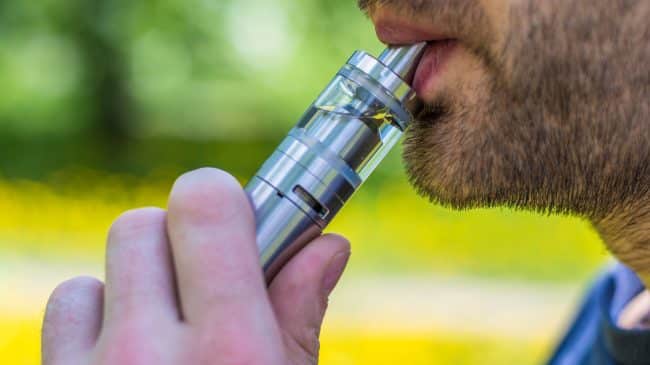Rep. Tom Cole, R-Okla., and Rep. Sanford Bishop, D-Ga., introduced legislation in the House of Representatives on Thursday which, if adopted, could prevent the e-cigarette business from falling into a state of de facto prohibition.
The bipartisan legislation would alter Food and Drug Administration rules requiring products deemed to be tobacco products that came on the market after Feb. 15, 2007, (a predicate date) to undergo a prohibitively expensive and complicated approval process.
Entrepreneur Elevator Pitch Ep2: ‘Has Anybody Not Seen That Product?’
Watch Full Screen
The predicate date is especially damaging for e-cigarette businesses since almost all vapor products entered the market after February 2007.
The premarket tobacco application process can cost millions of dollars and countless man hours per product. Being almost entirely made up of small and medium-sized businesses, the e-cigarette sector can’t come anywhere close to affording the costs associated with these regulatory barriers.
Experts estimate if the rules are not changed 99 percent of the vapor market will be wiped out. Ironically, the only players who would be left in the e-cigarette space would be major tobacco companies that can afford to comply with the FDA regulations.
“Although these regs could stifle innovation, we believe this could be a net positive for big tobacco given the strength of their core businesses and financial flexibility,” wrote Wells Fargo’s Bonnie Herzog in an analyst note this May.
Not only would a change in the predicate date keep different product options open for those trying to quit smoking, it would save tens of thousands of jobs and thousands of small and medium-sized businesses from closing.
As they stand, the FDA’s deeming rules are draconian and counterproductive with a vast array of regular cigarette products to be kept on the market while much safer options such as e-cigarettes face prohibition. The British Royal College of Physicians estimates the harms associated with vaping are unlikely to exceed 5 percent of those of smoking.
While the proposed legislation would give vital breathing space to an industry facing massive uncertainty, both congressmen were eager to stress consumer safety and reducing tobacco-related harms as the primary objectives of their reforms.
“This legislation preserves the FDA’s ability to regulate these products on par with cigarettes, grandfathers currently available products. and then requires the FDA’s approval for any new product [that is] tobacco-related,” said Cole.
From a public health standpoint, the most important feature of this legislation is keeping products on the market that are far safer than regular cigarettes and are helping people transition out of smoking.
In the U.K., where government and public health bodies have embraced the opportunities e-cigarettes present for tobacco harm reduction, Brits are switching from smoking to vaping more rapidly than anywhere else in Europe.
“Vapor products offer a promising path for harm reduction for those seeking to quit or limit their smoking,” said Bishop. “This legislation would ensure the FDA’s regulatory process does not limit the availability of safer tobacco options for those seeking to make use of them.”

